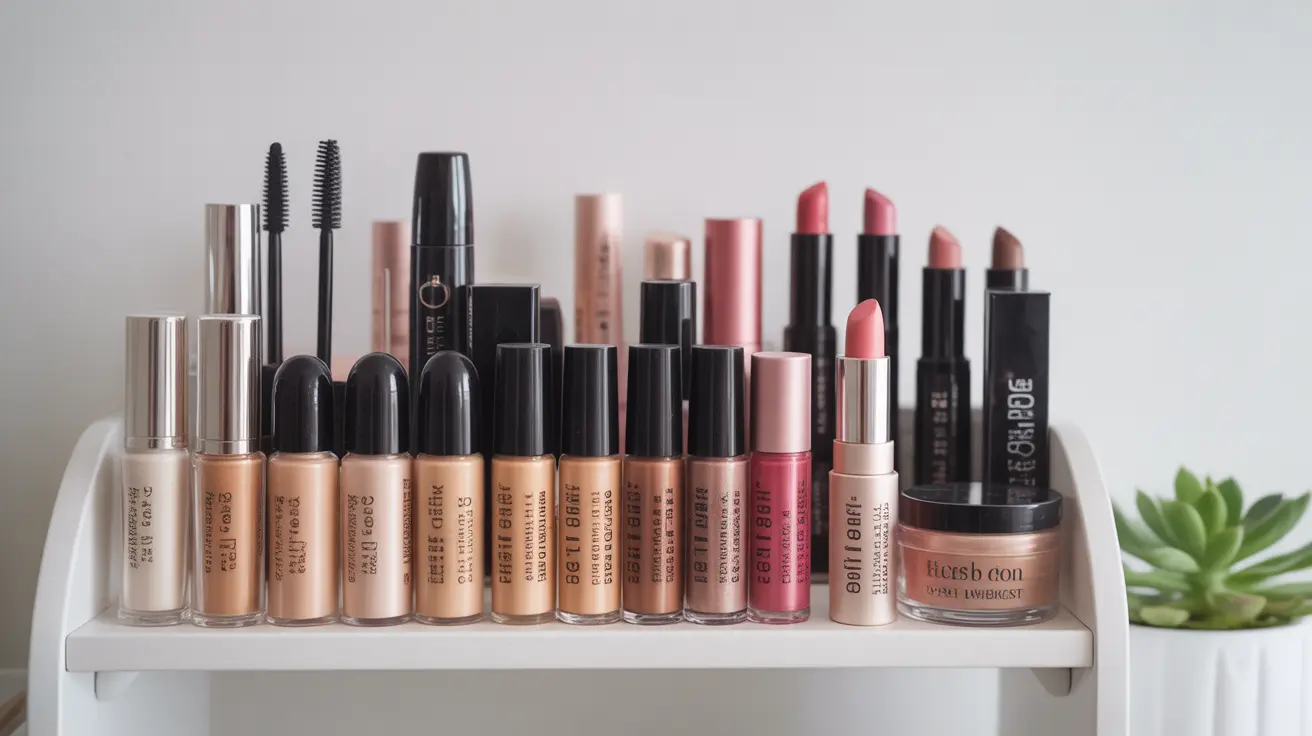Many beauty enthusiasts stock up on their favorite cosmetics during sales, but this raises an important question about the safety and efficacy of stored makeup products. Understanding whether unopened makeup expires is crucial for maintaining skin health and ensuring the best results from your beauty products.
While sealed packaging offers some protection, cosmetics can indeed expire even when unopened. Let's explore the science behind makeup shelf life and learn how to protect your investment while keeping your skin safe.
Understanding Makeup Expiration: Sealed vs. Opened Products
Contrary to common belief, unopened makeup does have a finite shelf life. While sealed products generally last longer than opened ones, various factors can affect their stability and safety over time. Most manufacturers provide a Period After Opening (PAO) symbol, but unopened products also have specific shelf life limitations.
Typical Shelf Life for Unopened Makeup
- Mascara and liquid eyeliner: 2-3 years
- Foundation and concealer: 2-3 years
- Powder products: 3-4 years
- Lipsticks and lip products: 2-4 years
- Cream products: 1-2 years
The Science Behind Makeup Deterioration
Even when sealed, makeup products can undergo chemical changes that affect their quality and safety. Temperature fluctuations, exposure to light, and the natural degradation of preservatives all play roles in product deterioration.
Impact of Product Formulation
Different makeup formulations have varying susceptibility to degradation. Water-based products are more prone to bacterial growth, while oil-based products may become rancid over time. Powder products typically have the longest shelf life due to their low moisture content.
Warning Signs of Expired Unopened Makeup
Before using stored makeup, check for these telltale signs of expiration:
- Separation or changes in texture
- Unusual odors
- Discoloration
- Dried or crumbly consistency
- Crystallization or granulation
Storage Tips for Maximum Shelf Life
Proper storage can significantly extend the life of unopened makeup products. Consider these essential guidelines:
- Store in a cool, dry place away from direct sunlight
- Maintain consistent temperature (avoid bathroom storage)
- Keep products in their original packaging
- Check seals regularly for damage
- Document purchase dates for reference
Health Risks and Safety Considerations
Using expired makeup, even if previously unopened, can pose various health risks. These may include skin irritation, infections, and allergic reactions. The preservation system in cosmetics eventually breaks down, potentially allowing harmful bacteria to grow.
Frequently Asked Questions
- Does unopened makeup expire and how long is it safe to use if sealed?
Yes, unopened makeup does expire, though it typically lasts longer than opened products. Most sealed cosmetics remain safe for 2-3 years, with powder products lasting up to 4 years. However, this varies by product type and storage conditions.
- How does the type of makeup, like cream or oil-based products, affect its unopened shelf life?
Cream and oil-based products generally have shorter shelf lives due to their susceptibility to rancidity and bacterial growth. Powder products last longest, while liquid and cream formulations may expire sooner, even when unopened.
- What are the signs that unopened makeup has gone bad and should not be used?
Key signs include changes in color, texture, or smell, separation of components, unusual crystallization, and any visible mold growth. If the packaging appears damaged or the product seems altered, it's best to dispose of it.
- Can using expired makeup, even if unopened, cause skin irritation or infections?
Yes, expired makeup can cause skin irritation, allergic reactions, or infections, even if previously unopened. The breakdown of preservatives can allow harmful bacteria to grow, potentially leading to skin problems or eye infections.
- How should I store unopened makeup to maximize its shelf life and safety?
Store unopened makeup in a cool, dry place away from direct sunlight and temperature fluctuations. Keep products in their original packaging, maintain consistent temperature, and avoid bathroom storage where humidity can affect even sealed products.




